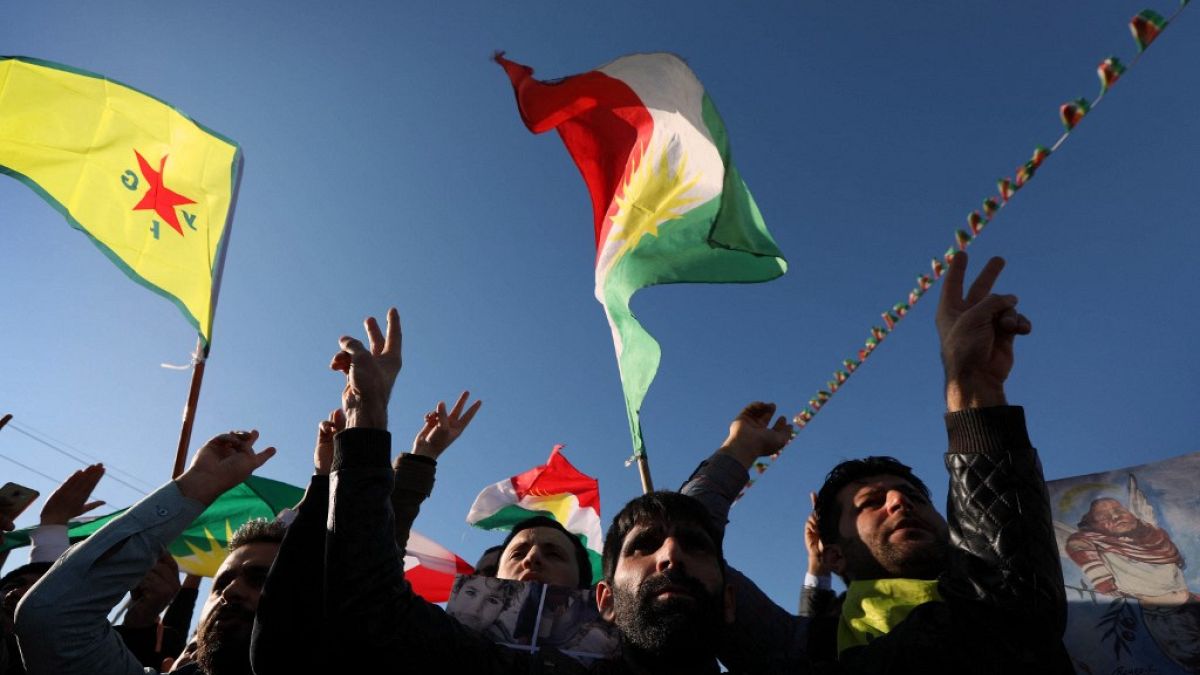The Turkish president spoke to his Russian counterpart on Sunday, calling for the creation of a buffer zone in northern Syria.
Turkish President Recep Tayyip Erdogan told his Russian counterpart on Sunday that there was a need to "clear" northern Syria of Kurdish forces, during a telephone call.
Turkey's leader said to Vladimir Putin “it is ... a priority to clear the border of terrorists, at least 30 km deep", referring to Kurdish fighters from the People's Protection Units (YPG) in northern Syria, according to a statement from his office.
The two leaders also discussed grain supplies and a potential regional gas hub in Turkey, both countries said.
Both men discussed "the problem" of resolving the Syrian conflict and how the conditions of a 2019 agreement between Russia and Turkey could be "fulfilled".
Three years ago Moscow and Ankara signed a deal, promising to create a buffer zone between the Turkish border and YPG forces that would be controlled by the Syrian army and Russian military police.
While Russian and Syrian forces are in the border region, the agreement was not fully implemented and Kurdish groups remain.
The two countries will continue "close contact" in the realms of defence and foreign policy, the Russian presidency said in its statement.
Erdogan has threatened to launch a military operation in northern Syria against the YPG since November.
Turkey launched air and artillery strikes in Syria and Iraq following an explosion in Istanbul on 13 November that six people and wounded dozens of others.
Ankara accused the YPG and its affiliates the Kurdistan Worker's Party (PKK) of being behind the attack that killed six people in Istanbul on November 13.
Kurdish forces have denied any involvement. They typically attack only targets linked to the Turkish state.
A separate agreement on the creation of a buffer zone in northern Syria was struck between Ankara and Washington in 2019.
Turkey criticises the US, as well as Russia, for not respecting these deals and allowing the YPG to remain in the north, which is home to the bulk of Syria's Kurdish population.
During the Syrian Civil War, the Kurds were able to carve out an autonomous state in north and eastern Syria, having long wanted more political autonomy.
Kurdish troops spearheaded the fight against the Islamic State, working alongside international forces to drive the jihadist group from its Syrian strongholds.
Both Moscow and Washington oppose a possible Turkish ground incursion into northern Syria.
